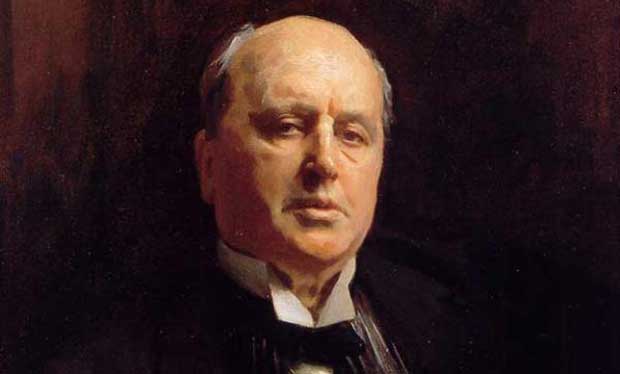Friday
I’m currently on a Henry James kick after having long ignored the author’s novels (with the exception of Turn of the Screw and Portrait of a Lady.) Thanks to Sewanee Library’s fantastic books-on-disk collection, I just finished listening to Daisy Miller and Washington Square as I drove around on errands. I am now embarking upon the much longer Ambassadors.
What impresses me about James is that his protagonists have more to them than one expects. In the two novels I’ve just listened to, the other characters sell Daisy and Catherine Sloper short, and we the readers may do so as well, only to discover unexpected substance. Daisy at first seems a shallow American flirt and Catherine Sloper a timid and dull woman. Catherine’s brilliant father, in fact, sees Catherine in exactly this way. The danger of reducing them to types, a favorite activity of Dr. Sloper, becomes apparent.
The result is that one’s sense of human possibility expands in the course of the works. Quiet Catherine is much more than either of the two men in her life, both of whom ceaselessly mansplain. In fact, I can’t think of another novel that has such incessantly patronizing men. The fact that, in her quiet way, she breaks with both of them is a real victory. If this is what men are like, then her decision to remain unmarried makes perfect sense.
As I listen to James’s works, I sometimes think of the very high status he attained in the eyes of figures like scholar and critic F. R. Leavis, who cited him as one of England’s four greatest novelists (along with Austen, George Eliot, and Conrad). English departments in the 1950s and 1960s followed suit and lionized him. In his Introduction to Literary Theory, Terry Eagleton has fun poking holes in their belief that reading figures like James will save civilization:
Was it really true that literature could roll back the deadening effects of industrial labor and the philistinism of the media? It was doubtless comforting to feel that by reading Henry James one belonged to the moral vanguard of civilization itself; but what of all those people who did not read Henry James, who had never even heard of James, and would no doubt go to their graves complacently ignorant that he had been and gone? These people certainly composed the overwhelming social majority; were they morally callous, humanly banal and imaginatively bankrupt? One was speaking perhaps of one’s own parents and friends here, and so needed to be a little circumspect. Many of these people seemed morally serious and sensitive enough: they showed no particular tendency to go around murdering, looting and plundering, and even if they did it seemed implausible to attribute this to the fact that they had not read Henry James.
Eagleton is wonderfully witty here, and, given his Marxism, I think he singles out James because he is an acquired taste and because he sets his works in upper crust settings. And yet, I have to say that I could feel my own humanity expanding as I listened to the novels. Rather than flattering me with the sense that I was a member of some elite, the novels made me feel more connected with other people.
This, indeed, is the aspect of James that University of Chicago philosopher Martha Nussbaum appreciates. As she sees him, he is extraordinarily sensitive to the delicacy of relationships, both how we bruise each other and how we prove resilient. He respects his protagonists in profound ways and invites us to carry that respect into the world. In Nussbaum’s view, society is strengthened when we do so.
You’ll be hearing more from me about my James experiences.


